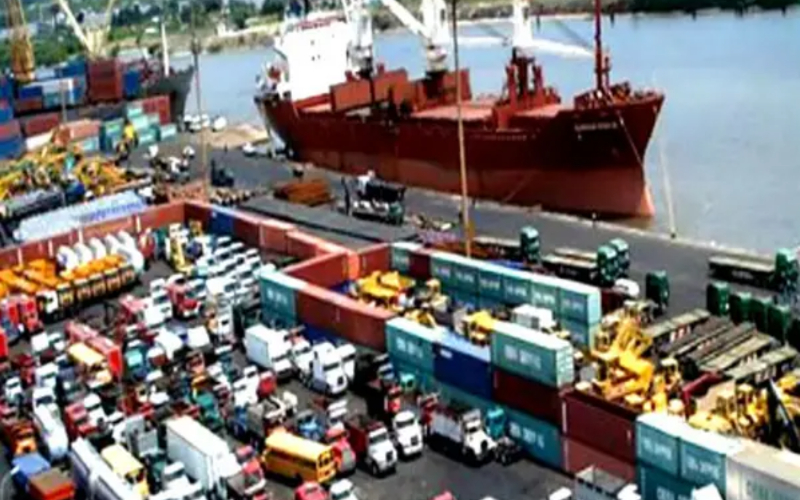The Chairman, Seaports Terminal Operators Association of Nigeria (STOAN), Princess Vicky Haastrup, said the Federal Government’s port concession programme has saved the country about US$8.5 billion (N3.91 trillion) which was hitherto paid to foreign shipping lines as congestion surcharge.
The STOAN chairman also said that members of the association, who are the concessionaires, are ready to inject more funds into the port once pending concession agreements are renewed. Haastrup said these while addressing journalists after a courtesy visit to her by the new Country Managing Director of APM Terminals Nigeria, Frederik Klinke.
She said in addition to the huge savings to the economy, terminal operators have also made significant investments running into billions of dollars at the six major seaports across the country.
“Nigeria’s port concession programme has been a monumental success. Many African countries send representatives here to understudy our port concession regime and how we were able to substantially increase investment and efficiency within a very short period of time. It shows ‘we can-do spirit of Nigerians’.
“The port concession programme reduced the waiting time of vessels coming into our ports from an average of 45 days before 2006 to less than three days at present. It has helped in eliminating the notorious congestion surcharge hitherto imposed on our ports by major shipping lines under the aegis of the Europe-West Africa Trade Agreement EWATA.
“The elimination of the port congestion surcharge has resulted in saving Nigeria’s trading community over US$500 million per annum. If you multiply that by the 17 years of port concession, that amounts to a savings of US$8.5 billion to date. In naira terms, that is a savings of more than N3.9 trillion to the Nigerian economy” she said.
The Country Managing Director of APM Terminals Nigeria, Frederik Klinke, who said his company has a long-term commitment to Nigeria, assured that APM Terminals would continue to set new standards for port operation in the country and support the Federal Government’s drive to diversify the economy through the promotion of non-oil export.
SOURCE: VANGUARD











